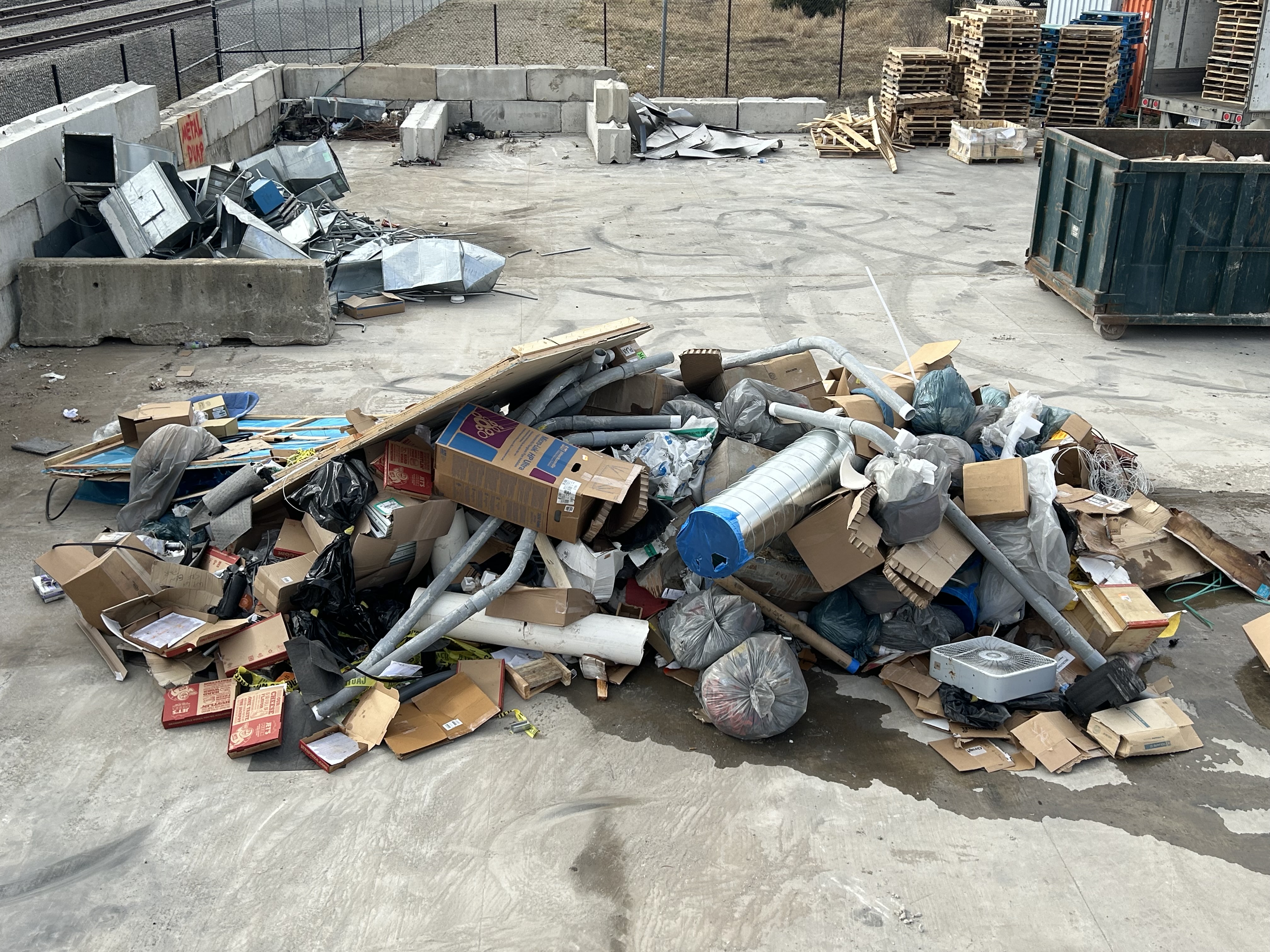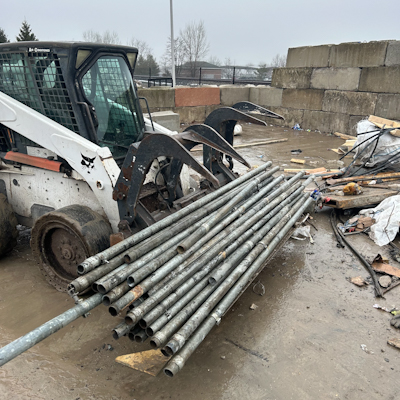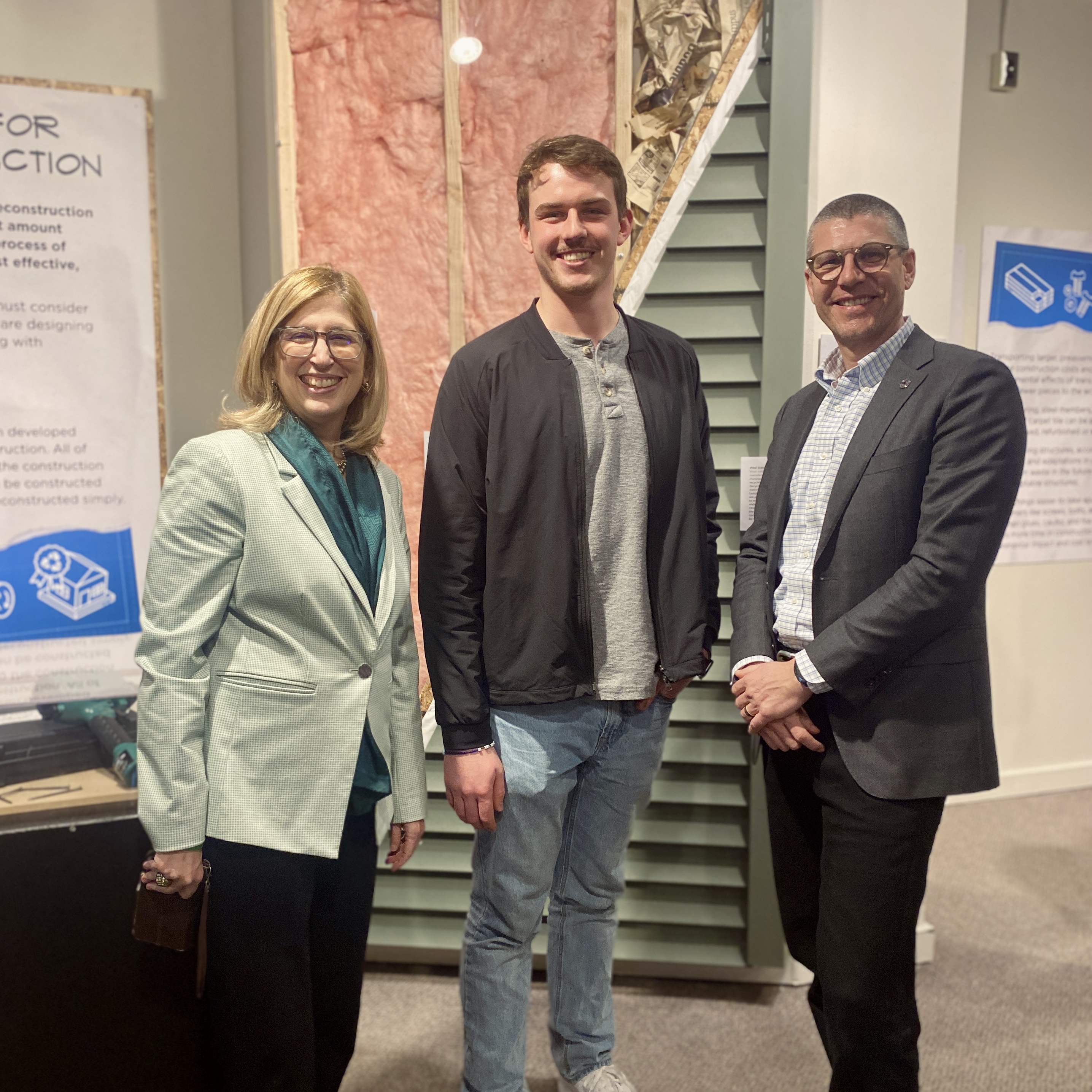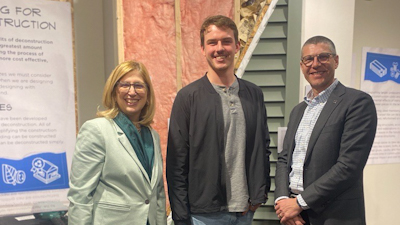Student View: Resource Rescue
Posted by Chandler Jones on Mar 12th 2024
I'm Chandler Jones, a lifelong Spartan who shifted from studying geology to construction management. This is a snapshot of my journey into recycling C&D debris and discovering the field of domicology.
In the complex world of construction, where each nail, beam, and brick tells a story, there's a hidden value of waste waiting to be uncovered.
 Every demolition,
renovation, and construction project leaves
behind a trail of materials, destined for the
lonely fate of a landfill. In FY23, 1.75 million tons of construction & demolition (C&D) waste was sent to Michigan landfills. But what if we
could change this narrative? What if there
was a solution with impacts stretching far
beyond the construction site—a solution of
immediate impact and tangible change?
Every demolition,
renovation, and construction project leaves
behind a trail of materials, destined for the
lonely fate of a landfill. In FY23, 1.75 million tons of construction & demolition (C&D) waste was sent to Michigan landfills. But what if we
could change this narrative? What if there
was a solution with impacts stretching far
beyond the construction site—a solution of
immediate impact and tangible change?
Enter domicology—a field of study, first established at MSU, dedicated to understanding the lifecycle of our built environment, reshaping the way we view and manage construction materials.
As someone who has worked in diverse landscapes of construction across the country, I’ve witnessed firsthand the untapped value buried within the materials destined for landfills. From my days as a residential framer, commercial project engineer, and project management intern, I’ve seen a common factor through most of the material in construction dumpsters: materials that can be salvaged, rescued, and repurposed.

Working at the Surplus Store & Recycling Center (SSRC), I discovered the intricate process of material recovery, shaping my curiosity for minimizing waste in construction. I started as a sort line worker in 2021, hand-sorting the recycling from campus and the public recycling drop-off center. Progressing within the facility, I operated forklifts, balers, and directed warehouse traffic, gaining insights into the complexities of material recycling. These experiences, coupled with various construction roles throughout the country, fueled my passion for maximizing diversion rates of construction waste during my graduate studies.
In 2023, SSRC leadership entrusted me with the redesign of the process for diverting materials from campus construction and demolition projects. This initiative resulted in the establishment of a new diversion station, where we continue our efforts in refining practical solutions in combination with academic research.
Now, I serve as the research assistant under SSRC's manager of waste collection, tasked with leveraging my academic research to develop processes to sort, track, and divert waste away from landfills and back into the supply chain.
From sorting materials by hand, running heavy equipment to support the process, and witnessing the hundreds of people who show up weekly to purchase surplus materials, I realized the importance and potential of taking action now for a more sustainable future. Throughout this journey, domicology has remained at the forefront of my work.
During my first semester of graduate school I had the opportunity to contribute to a one-of-a-kind exhibit in the Michigan State Museum, “Domicology: The Life Cycle of Our Built Environment,” the first exhibit on the subject.
I was invited by my advisor, Dr. George Berghorn, of the Planning Design & Construction and Forestry Departments, to build a realistic representation of the cross-cut of an average contempory buildling. Contributing to the exhibit development helped me better understand how academics are working to communicate this issue to spark systematic change toward a circular supply chain.

Throughout this collaboration, it became evident that Michigan State's Surplus Store & Recycling Center occupies a unique market position and has the potential to spearhead practical improvements to the waste processing stream. The SSRC, unlike traditional waste companies, has an onsite direct-to-consumer store, along with a constant influx of materials beyond construction waste. As part of a public university that prioritizes research and innovation, SSRC functions like a lab, allowing students and staff the opportunity to test programs that enhance diversion rates.
At the SSRC, materials once deemed expendable find new life. Metal, glass, plastic, cardboard, paper, concrete, and wood, once destined for the landfill, are meticulously sorted, and diverted for recycling; all remaining waste is compacted and sent to the landfill. Reclaimed concrete paves the way for future projects on campus, while surplus wood finds a second home through resale at the Surplus Store or in landscaping mulch. Other materials are sent to recycling centers where they process the materials and send them to manufacturers for reuse.
Diversion methods that are successful at MSU have the potential to be applied to construction sites and/or waste management companies. This positions MSU as a leader in sustainable waste management, offering solutions that individual firms may struggle to implement right now.
By relying on reclaimed materials, we become less dependent on limited raw resources. Moreover, diverting construction waste from landfills reduces pressure on limited landfill space, alleviating the strain on our environment. This means cleaner air, healthier ecosystems, and a brighter future for generations to come. The benefits of using reclaimed materials extend far beyond environmental conservation too, by reducing costs associated with purchasing new materials, reclaimed materials could offer a lifeline to affordable housing initiatives and provide new jobs that are required for processing the materials.
Here in East Lansing, we are optimistic about the future and excited to develop strategies that can be implemented now. As we navigate the complexities of C&D waste, let us remember that within every dumpster sits a choice of discarding or reusing. Together we should identify C&D waste as a resource, rather than a burden. Even the most overlooked materials can become the building blocks of a brighter, greener future.
The journey towards sustainability begins with a single step. Let's not wait for tomorrow to build a better future; let's start today. Who will? Spartans Will!
About the author
Chandler Jones earned his undergraduate degree in construction management in the fall of 2023, while simultaneously pursuing a Master of Science in Construction Management. Chandler currently works at the Surplus Store & Recycling Center.

